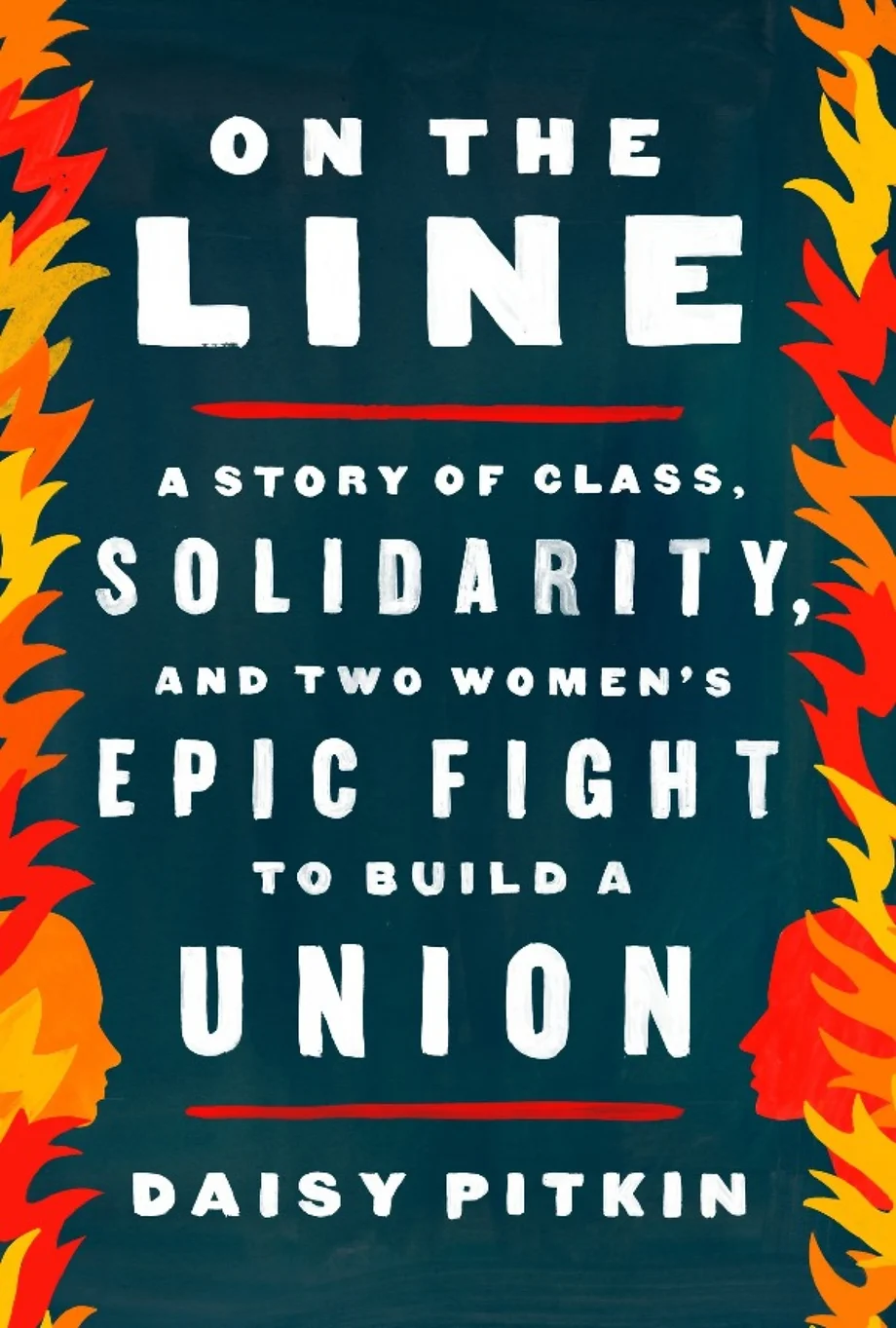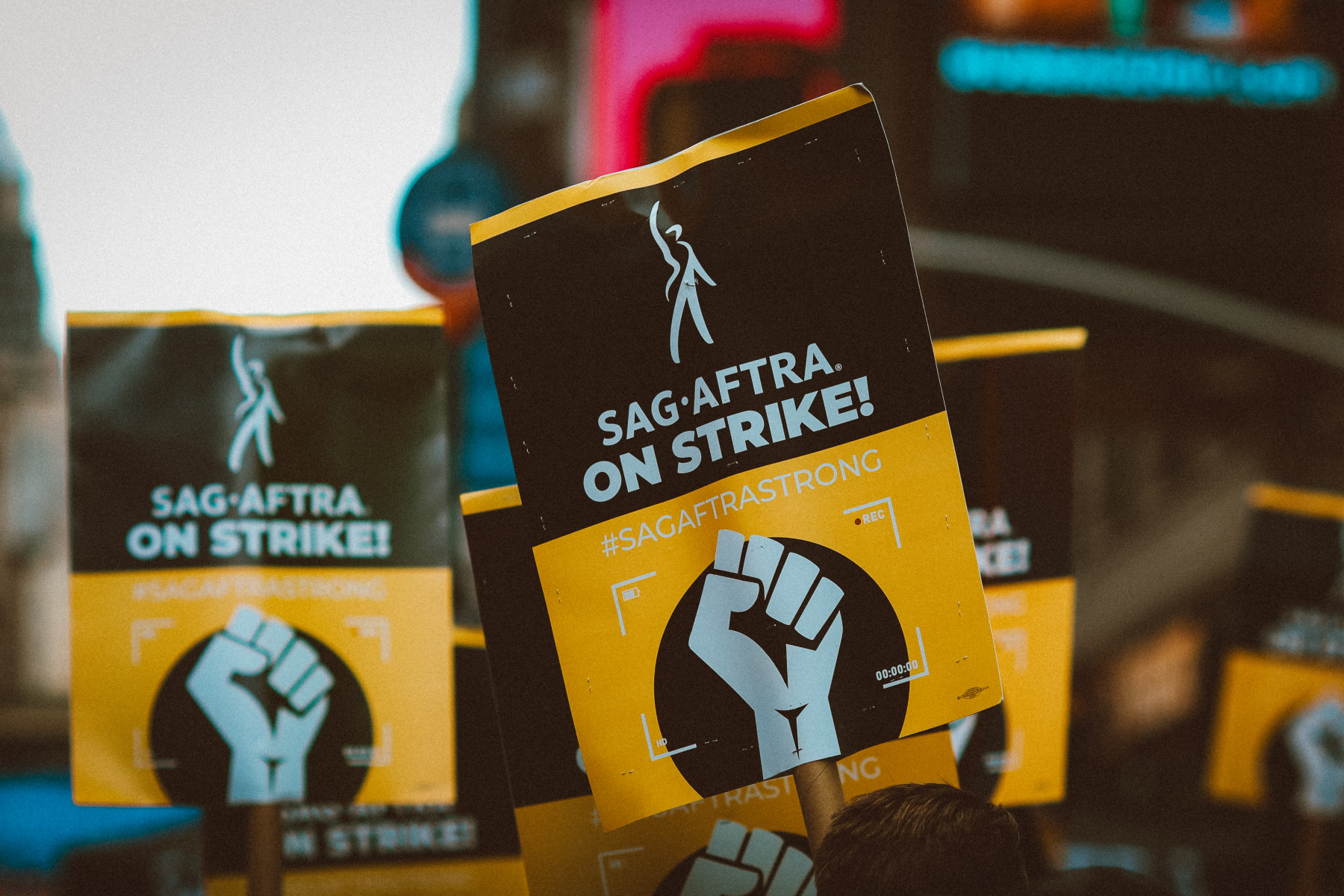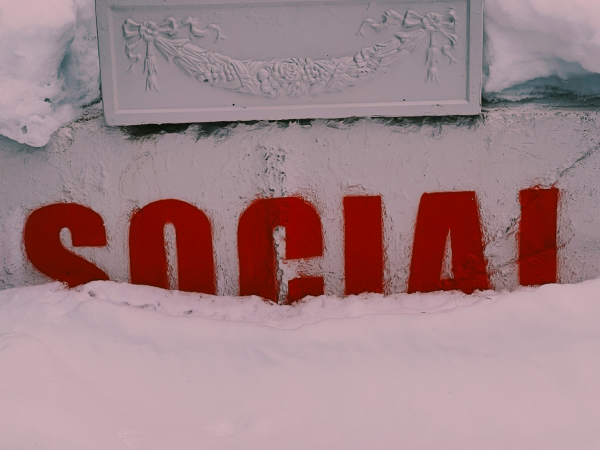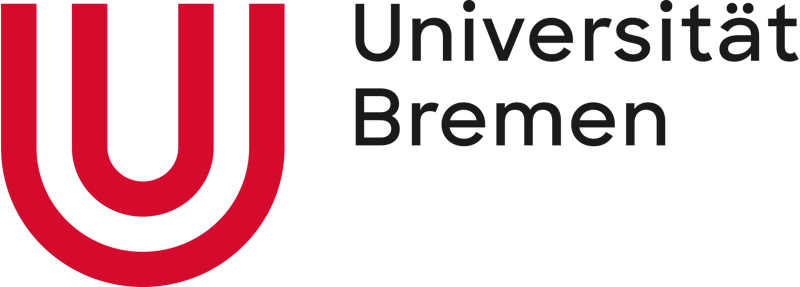Daisy Pitkin is a union organizer. In her book "On the Line", she narrates the five-year fight to unionize industrial laundries in Phoenix, Arizona. We talked to her about the ongoing challenges and the new momentum for unions in the United States.
Thanks for joining us for this interview.
Could you briefly share with us how you came to be interested in unions and a little bit about how you started your trajectory in organizing?
As a kid, I grew up in a working-class community in a rural area. There was a Ford plant around the corner, and at one point I saw the workers there go on strike. It was one of the most moving things that I've ever seen happen: these people who work together every day in this factory decided that they're going to stand up for each other and try to improve their working conditions.
Later, when I was in college, there was a lot of activism across the United States about sweatshops. I started as a student activist, trying to engage students who consume college apparel in ensuring that what they were purchasing was produced in humane ways. We were campaigning to create an organization called the Worker Rights Consortium, an international monitoring firm at apparel factories, to try to help workers by reporting those conditions to universities across the US.
I was really engaged at the time, and I believe in that work-- the work of international solidarity, especially inside such a consumer-driven culture in the US. It's incredibly important that people understand where and how the items they use every day are produced. But it felt somehow indirect, organizing consumers to stand in solidarity with workers somewhere else.
Then, in my senior year, workers at a Holiday Inn Express down the street had just successfully unionized the hotel. The company called immigration services to try to deport some of the housekeepers who led the organizing effort there, and their coworkers went on strike to stop them. And the community, in what seemed like magic to me at the time, rose up-- there were picket lines all over the city, candlelight vigils, marches, strike kitchens. It was the most powerful thing I'd ever witnessed, and I wanted to be part of that fight.
So, when I graduated college, I became a union organizer and started organizing with industrial laundry workers for a small, scrappy union called that was trying to see if we could organize workers in very conservative cities and states in the United States. I was sent to help lead that process with the industrial laundry workers in Phenix, Arizona. There, workers have to actually sort soiled linen with their hands, when it comes from hospitals, restaurants and hotels. My recent book, ‘On the Line,’ tells the story of that campaign.

What do you think was the main lesson that you learned from leading that campaign?
I learned so much during those years, but one of the main lessons is that labor law in the United States is irrevocably broken. It is so stacked against workers that it surprises me every time workers are actually able to set up a union and win a first contract. Labor law here, and the mechanisms through which it is meant to be upheld, are so weak and toothless that companies are incentivized to break the law.
But I also learned that the work of organizing is deeply emotional work, and that when working people get together to make change, they're changing not just their workplace, but also themselves and their communities, the texture of their communities and families, their agency in the world. And it's a deeply human, beautiful thing.
The way that I learned to be an organizer had a lot to do with anger: that workers will come together and risk their livelihoods to make change when they're angry enough about the conditions they face. And I think that's largely true. Anger is an emotion that's powerful enough to help workers overcome their fear when they're trying to organize a union.
But anger is not enough to sustain the long fight that it takes to organize here. What workers build when they work together is a form of hope and mutual aid, of care and love for each other. Union organizing in the US is thought of as a battle, we even talk about it using military allegories a lot-- instead of thinking of it as the construction of a mutual aid network, that it's a way of building love. We ought to think about it and talk about it more in that way.
There have been many recent union wins across the US, for instance in tech, the gig economy, and the entertainment sector. What do you think has been sparking these efforts?
There's a massive upsurge in organizing work happening in the United States, from the Starbucks campaign to all those other sectors, and it's happening at the same time as a lot of current union members are demanding a different kind of agency within their own unions. We're seeing democratic slates being run for internal democracy inside unions at the same time that this organizing upsurge is happening.
I think people are really hungry for a place where they can enact change, especially young workers all across the country. I get to work with a lot of young workers now on the Starbucks campaign. Not all of them are very young, but a lot of them are. And I think a lot about the world they are facing, with multiple interlocking global crises laid at the feet of young people. And what they see when they look around is that no help is coming. No one's coming to help them figure out things like: will the United States have a democracy in twenty years? Will there be a livable planet? Will they have access to medicine and health care? Will they be crushed by student debt?
No one's helping them solve these problems, so they realize that they have to do it themselves. And one of the most concrete next steps that can be taken is: “We're going to form a union and try to change our immediate, day to day material lives”. They are learning and teaching each other how to create change.
In the US right now, unions are polling at a level of popularity that has not been seen in this country in over 70 years. 88% of people 30 and younger view unions favorably right now. That number is astounding after the last twenty years of grinding out very difficult organizing here.
People talk a lot about COVID-19 as the trigger for this new upsurge in organizing. And I think that the COVID pandemic really laid bare, for a lot of workers, how little their employers care about their safety. Many corporations made record breaking profits during the height of the COVID pandemic, while telling workers - young people serving coffee - that they are essential to the economy and must go to work, but without giving them any share of those record-breaking profits. That laid bare the texture of the crises that young people are facing.
Now, I think the question really is, will U.S. labor organizations be able to harness that energy and turn it into something? Will U.S. labor unions be able to put money, infrastructure and resources into organizing and harnessing that energy? We'll see.
Has the shift towards remote work after the pandemic changed the way workers organize, the drive for organizing? And has it also affected your work as an organizer?
Yes, organizing just went online during COVID and it hasn't come back offline totally yet. A lot of the organizing we do now happens virtually through these squares on the Zoom screen. It's a very different kind of organizing. I like to spend time with people in rooms, getting to know people as whole human beings, and not just for an hour or an hour and a half to have a union meeting in this square digital world.
It's strange to me to organize this way, but the speed at which people are able to organize has increased, and that's really interesting. Going digital is sort of a great leveler, it becomes much more accessible. People can learn more quickly. A worker leader in Boston who just learned how to organize her workplace can get on a zoom with a worker leader in Austin, Texas, and teach them how to do it. The skill that it takes to organize has become democratized in a way through people learning how to do it online and then being able to teach very quickly because you don't need someone to send you all around to do it. This format lends itself to the wild upsurge in organizing that we're seeing happen right now.
But it has its deficits. It's more difficult to build that kind of community of mutual aid and care through this kind of space. I don't think it's impossible, and younger folks are better at it. I think it's less alien for people who are digital natives, but even for them it's still hard. We miss a lot of building the deep care for each other that generates the solidarity needed to win a long fight, as durable as it needs to be in order to win.
Maybe there's sort of a hybrid model. Maybe we need to get hyper local in our building of solidarity networks and mentorship networks. Especially with mentorship, because it takes more time and commitment and just being with people. But there is something really beautiful about how this skill sharing has just become utterly fast and just more democratic.
What do you see as the most important challenges for union and labor movements in the US right now?
There are really two questions to be answered. One of them is, will we create some legal protections for people when they're organizing, so the companies can't fire them and intimidate them with impunity? Can we create some sort of a legal structure that compels companies to bargain in good faith with workers once they form a union? We need to fix the law so that it protects workers and creates a more level-playing field for workers when they're trying to organize, especially inside multibillion dollar corporations that have immense amounts of power.
And then there's the question of: will labor organizations commit to putting the resources and time necessary to harness this new energy for organizing? There's an appetite for organizing, but we need to embrace it, support it, and fund it. This is the second biggest challenge, getting labor unions to commit to organizing millions of young workers who want unions right now is going to be a resource-heavy operation.








